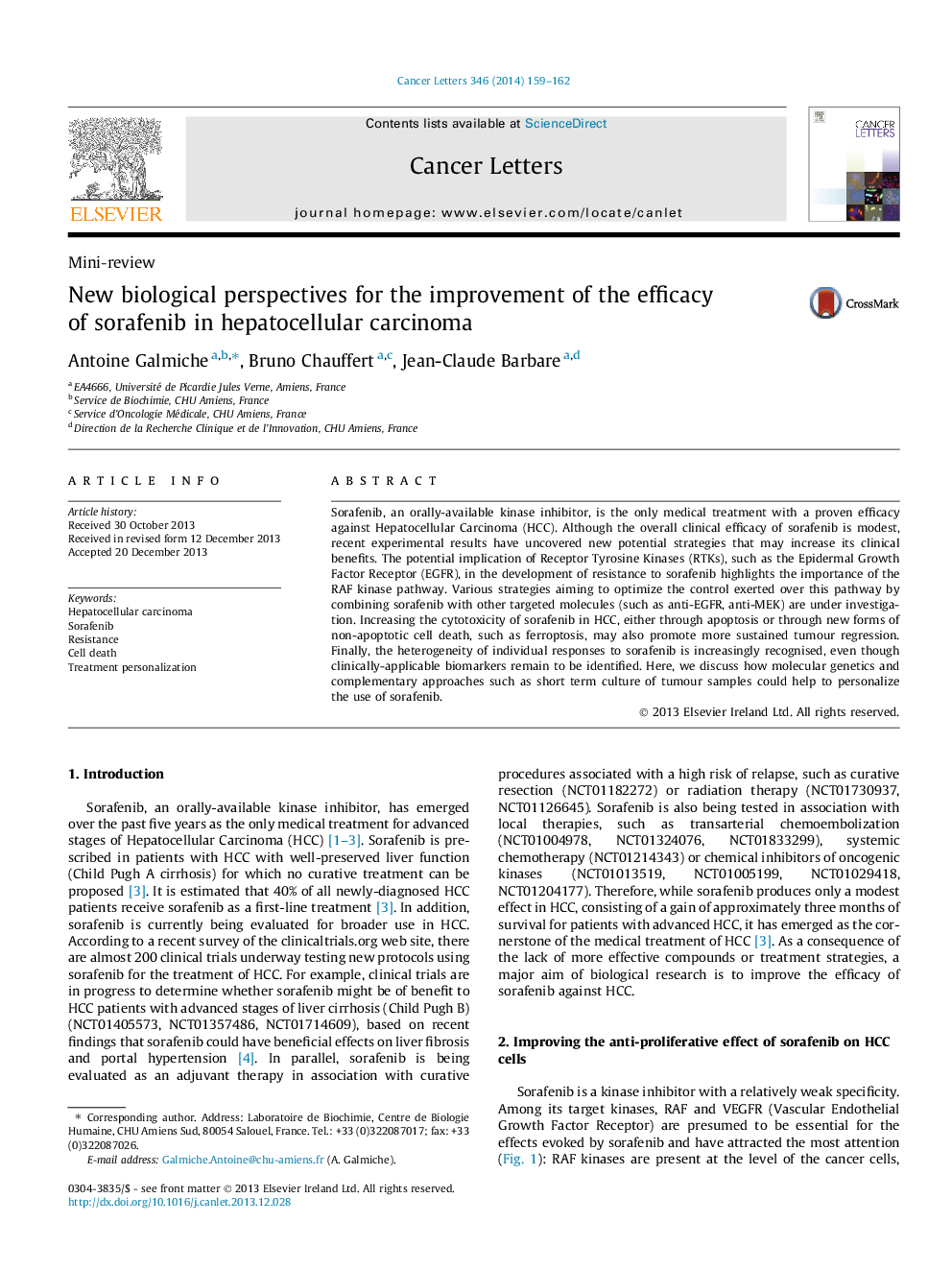| Article ID | Journal | Published Year | Pages | File Type |
|---|---|---|---|---|
| 10899818 | Cancer Letters | 2014 | 4 Pages |
Abstract
Sorafenib, an orally-available kinase inhibitor, is the only medical treatment with a proven efficacy against Hepatocellular Carcinoma (HCC). Although the overall clinical efficacy of sorafenib is modest, recent experimental results have uncovered new potential strategies that may increase its clinical benefits. The potential implication of Receptor Tyrosine Kinases (RTKs), such as the Epidermal Growth Factor Receptor (EGFR), in the development of resistance to sorafenib highlights the importance of the RAF kinase pathway. Various strategies aiming to optimize the control exerted over this pathway by combining sorafenib with other targeted molecules (such as anti-EGFR, anti-MEK) are under investigation. Increasing the cytotoxicity of sorafenib in HCC, either through apoptosis or through new forms of non-apoptotic cell death, such as ferroptosis, may also promote more sustained tumour regression. Finally, the heterogeneity of individual responses to sorafenib is increasingly recognised, even though clinically-applicable biomarkers remain to be identified. Here, we discuss how molecular genetics and complementary approaches such as short term culture of tumour samples could help to personalize the use of sorafenib.
Related Topics
Life Sciences
Biochemistry, Genetics and Molecular Biology
Cancer Research
Authors
Antoine Galmiche, Bruno Chauffert, Jean-Claude Barbare,
